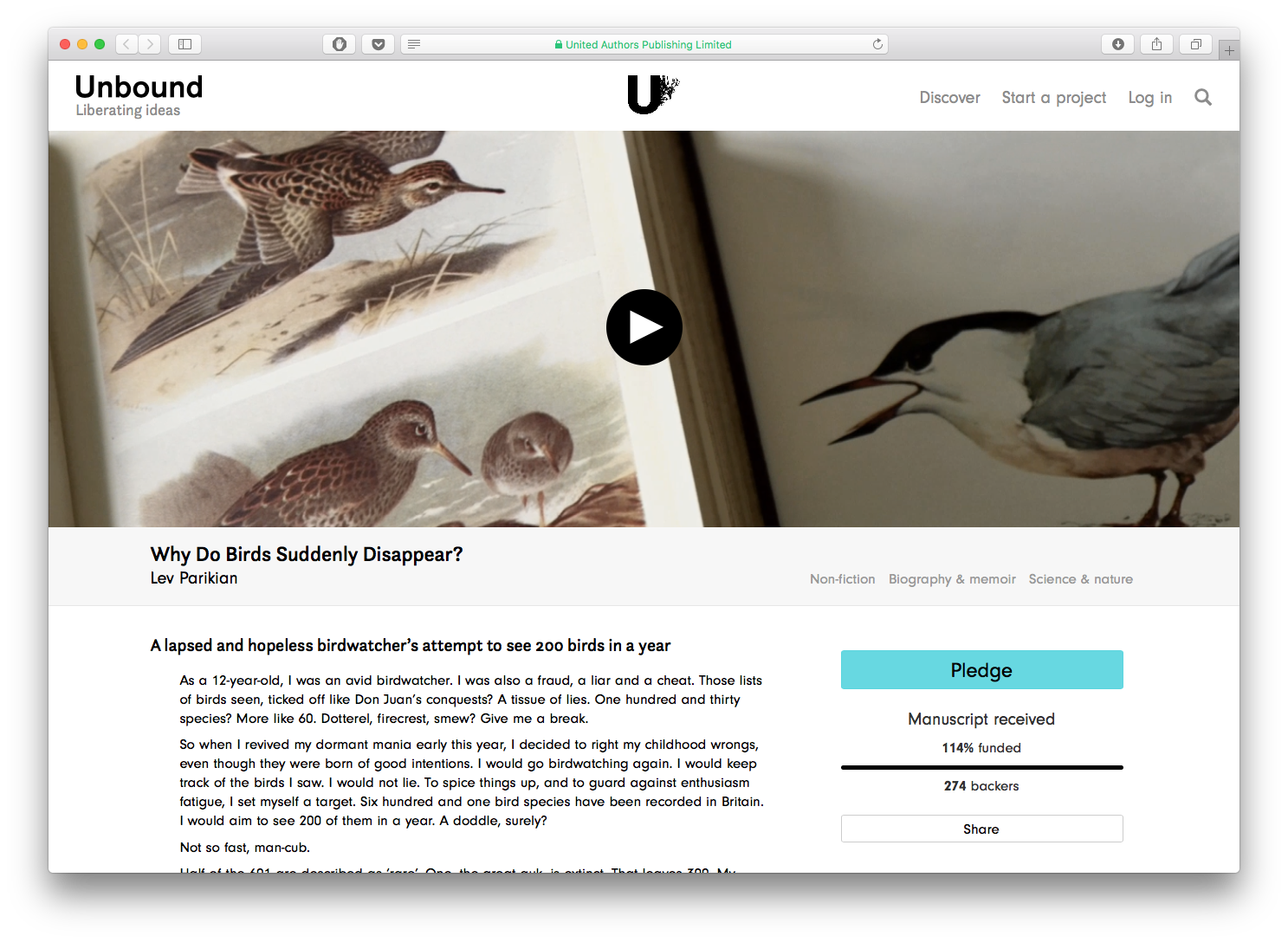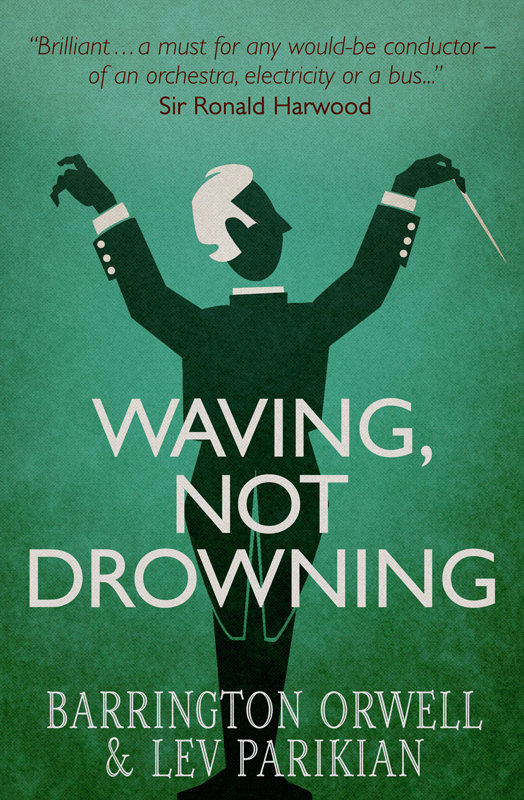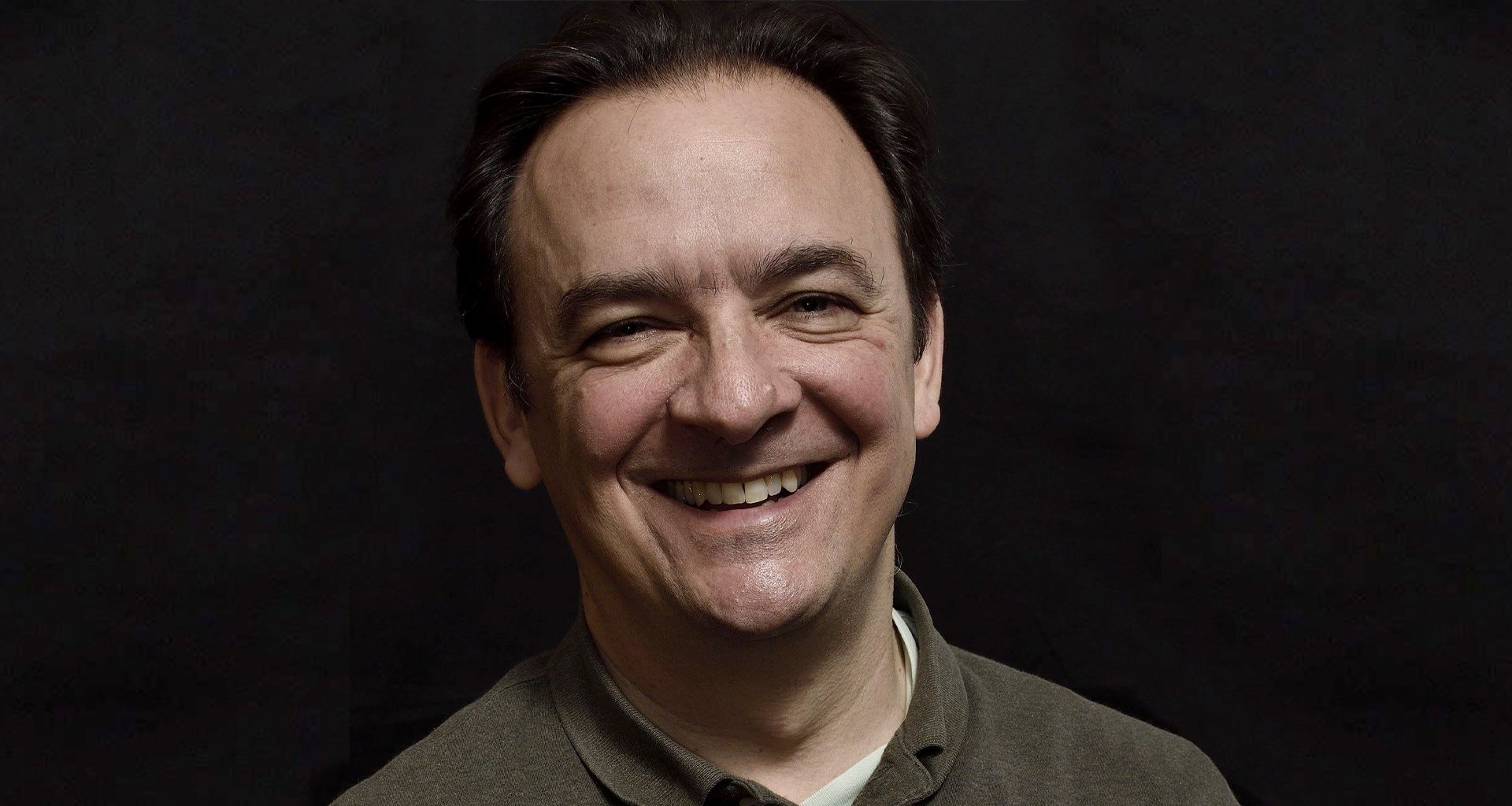Lev Parikian earns his living as a conductor, but is also a dedicated writer. In our interview he reports what it is like to juggle between two professions, and talks about the pros and cons of crowdfunded publishing.
Please tell us something about you and what you are working on.
I divide my time between conducting and writing. The conducting keeps me busy enough, working mostly with amateur orchestras in and around the London area, but I’ve increasingly made sure I find time for writing. My most recent project is Why Do Birds Suddenly Disappear?, a tale of woeful ornithology, which will be published by Unbound in 2018.
Do you consider yourself more of a conductor, or of a writer?
It slightly depends what day it is. Until a couple of years ago I would definitely have said “conductor then writer”, but with the publishing of my first book, Waving, Not Drowning (a light-hearted book lifting the lid on the secrets of the conductor’s craft) and now Why Do Birds…?, the balance has shifted. Juggling the two is… interesting.
What are the differences and similarities of these professions?
Although both are in creative fields, the differences between them are stark: a conductor is used to standing up in front of people, comfortable with the sound of their own voice (too much so, sometimes) and extrovert; writers are often introverted, like spending time alone, and shy away from the limelight. And while conductors (and other classical musicians) have a certain amount of interpretive licence, they are essentially recreating the work of the composer; when writing, you’re responsible for the creation of something original, and I think it’s that side of it that particularly appeals to me.
Conducting and writing both require terrific commitment and dedication without the promise of great financial reward.
What they do have in common is that both require terrific commitment and dedication without the promise of great financial reward.
What made you start writing in the first place?
A fascination with the power of words and stories, I suppose. In particular the way a really good comic writer can lift your mood. PG Wodehouse and Douglas Adams were the great heroes, and they set the bar tremendously high. If ever I feel low, I only have to pick up a Ukridge story or a Dirk Gently volume to start feeling better. Their writing styles became so ingrained that I used to write my cricket club’s match reports as pastiches of Jeeves & Wooster stories or Arthur Dent episodes. And from there to developing my own voice was a natural progression. I’d always entertained notions of being a writer, but two things got in the way for many years: a preternatural aversion to work, and the craven fear that anything I wrote would be rubbish. It took me a while to realise that, with some exceptions, the first draft of anything is usually rubbish, merely a starting point – the old writing adage “writing is rewriting” might be a cliché, but it’s founded in fact.
You will publish your current book with the crowdfunding publisher Unbound. Could you explain how that actually works? What are the advantages and disadvantages of this model?
To explain how it works, I’m going to parrot the blurb from Unbound’s founders, Dan Kieran, John Mitchinson and Justin Pollard.
“On the Unbound website, authors share the ideas for the books they want to write directly with readers. If enough of you support the book by pledging for it in advance, we produce a beautifully bound special subscribers’ edition and distribute a regular edition and e-book wherever books are sold, in shops and online.”
Their pioneering publishing model puts control into the reader’s hands – if a book doesn’t reach its funding target, it doesn’t get made. You can back a project at various levels, and there are rewards associated with each level. Supporters of Why Do Birds…?, for example, could get a conducting lesson from me, a day out birdwatching, or an illustrated talk on the subject of Birds & Music. Or you could just opt for a copy of the book if pledging at a lower level.
The great thing about Unbound, from my point of view, is summarised by their strapline: “Liberating Ideas”. They see potential in all sorts of projects that might have difficulty gaining traction in the “traditional” marketplace (a book about birdwatching by a professional conductor falls firmly into that category!).

From commission to delivery it’s been clear that I’ve had the freedom to produce the book that I want to write, but I’ve also been guided by their expertise, experience and wisdom towards our ultimate goal: a beautiful and lovingly-produced book that we hope will delight readers. As a “new” writer, I’ve found this guidance absolutely invaluable.
You have to get over that very British feeling of not wanting to impose yourself on other people.
The disadvantages? In true “positive thinking” mode, I see challenges and opportunities rather than disadvantages, but there’s no doubt crowdfunding is hard work. You have to get over that very British feeling of not wanting to impose yourself on other people, a kind of allergy we have to selling ourselves, and, as someone at Unbound put it early on in the process, “embrace your inner American”.
From the reader’s point of view, there’s no doubt it’s not the most efficient way of buying a book – you pay upfront, trusting that the book will appear. But (and I can say this because I’ve supported several Unbound projects myself) one of the delights is the satisfaction derived from being (to put it a bit pompously) a Patron of the Arts. You can go into a bookshop when the book does appear, point to it and say “I helped make that – it wouldn’t exist without me”.
What is your book about, and how is it getting on?
It’s the story of how I rediscovered the joys of birdwatching after a thirty-five year hiatus, and specifically my attempt to see 200 species of British bird in 2016. It’s part nature ramble, part travelogue, part memoir. I’ve had tremendous fun writing it, and I hope readers will share that relish.
Which tools and apps do you use?

Ulysses Ulysses Ulysses! Accept nothing else.
Not quite true, unfortunately. I was (and still occasionally am) a Scrivener user, but found Ulysses after reading recommendations by David Hewson. And because of the ubiquity of Word, and its place as the default tool in the industry, I’ve had to submit the final manuscript using that, and I suspect any tweaks in the copyedit/proofing stage will be made there too. But I mostly use Ulysses, including for this interview.
I also use Evernote, which is great for chucking down scrappy ideas willy-nilly.
What else is important to keep you productive? As an example, do you work in a certain environment or follow a timely routine?
I write, boringly, in my office at home. If it’s nice, in the garden. I find I work better if I have a longer stretch of time at my disposal, but however long I’m able to devote to it I aim for a rhythm of 25 minutes on, 5 minutes off. It helps clear the head, I find. And there’s nothing like a deadline for increasing productivity.
What, do you think, is the most difficult thing about writing a book?
Seeing it through. Coming back to it again and again and making it as good as it can possibly be. And then having it torn from your protesting hands when it has to be released into the wild and you know there are still things you can do to make it better.
Do you have plans for writing another book when this one is finished?
Dozens. All I have to do is work out which is the good one.
There’s nothing like a deadline for increasing productivity.
How did you find out about Ulysses, and why did you choose it as a writing tool?
I read a post by David Hewson recommending it, then bought his book about it (having already read his book about Scrivener). He writes very persuasively and clearly, and I thought I’d give it a go. It also helped that the much-trumpeted rollout of Scrivener for iOS took so long to appear – being able to write on all my devices is so useful and liberating, and by the time Scrivener had got their act together I was already hooked on Ulysses.
What do you like best about Ulysses? Do you have a favourite feature?
It’s so simple to use – intuitive and straightforward, leaving me free to throw the words onto the screen. And because of its flexibility the process of reorganising those words is somehow not as daunting as it might be. It’s also handy that it’s so straightforward to export your work to other formats.
To learn more about Lev Parikian’s life as conductor and writer, visit his blog or follow him on Facebook. Also, check the progress his forthcoming book Why Do Birds Suddenly Disappear? at Unbound, where you can still pledge for a copy of the first edition with your name in the back.
